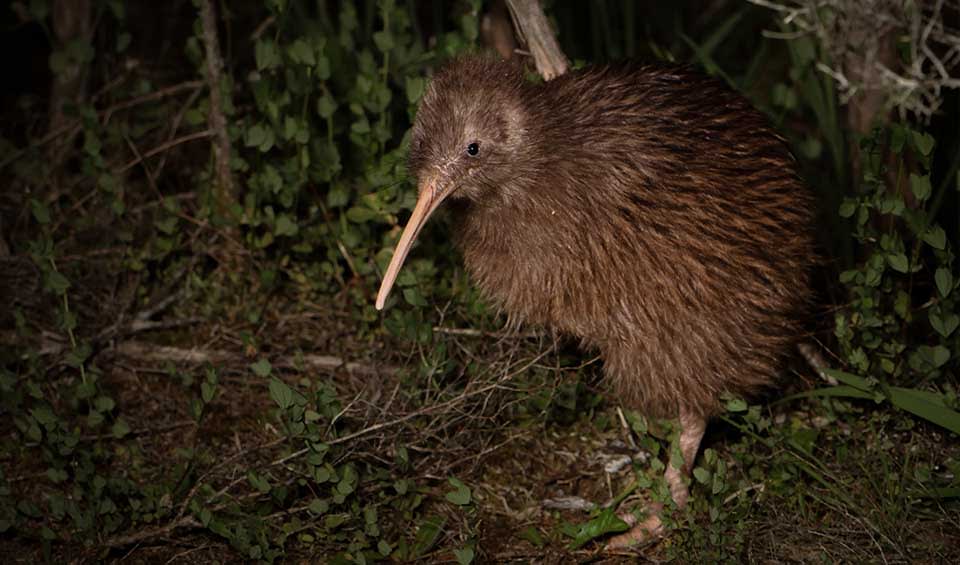A unique species of kiwi that is part of New Zealand’s natural heritage. The bird’s plumage is a mottled mix of brown and black streaks, providing camouflage against the forest floor where it resides. The Rowi is the rarest kiwi species, with its population limited to a small area on the West Coast of New Zealand’s South Island, particularly around the Okarito forest.
With their vestigial wings and lack of a tail, Rowis are well-adapted to a terrestrial lifestyle. They have long, curved bills that are highly sensitive, with nostrils located at the tip. This unusual feature allows them to have an exceptional sense of smell, which, along with their ability to detect vibrations, is crucial for locating prey such as insects, grubs, and worms in the dark forest underbrush.
Nocturnal by nature, Rowis spend their days in burrows, hollow logs, or beneath dense vegetation, emerging at night to feed and explore. Their eyesight is poor, a trade-off that evolution has made for their highly developed olfactory and auditory senses.
The social structure of the Okarito kiwi is solitary, with each bird maintaining a clearly defined territory. These territories are defended vigorously with a variety of calls, which can be surprisingly loud, and physical confrontations, including chases and fights, are not uncommon among these otherwise placid birds.
The Okarito kiwi’s natural habitat is the dense temperate rainforest, where it thrives in the undergrowth. However, the species is currently classified as “vulnerable” and “nationally critical” due to the threats it faces, such as predation by introduced species like stoats, dogs, and cats, as well as habitat loss and degradation from human activities.
Distribution
 New Zealand
New Zealand Official estimate
Official estimate
Anything we've missed?
Help us improve this page by suggesting edits. Glory never dies!
Suggest an editGet to know me
Terrestrial / Aquatic
Altricial / Precocial
Polygamous / Monogamous
Dimorphic (size) / Monomorphic
Active: Diurnal / Nocturnal
Social behavior: Solitary / Pack / Herd
Diet: Carnivore / Herbivore / Omnivore / Piscivorous / Insectivore
Migratory: Yes / No
Domesticated: Yes / No
Dangerous: Yes / No




